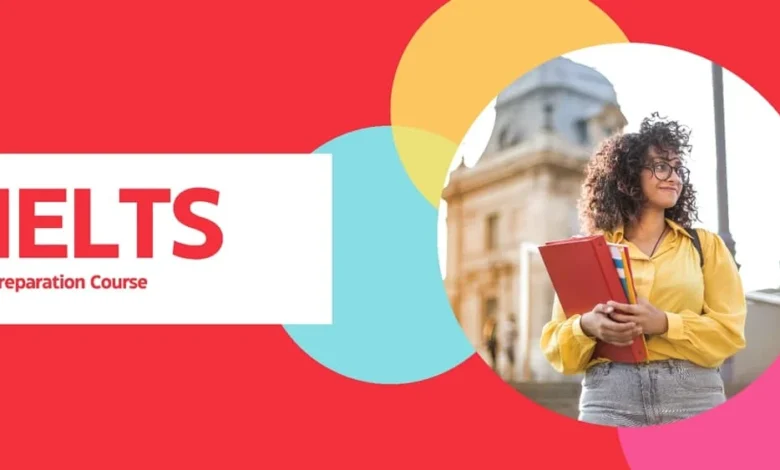IELTS Preparation: A Comprehensive Guide for Success in Pakistan

The International English Language Testing System (IELTS) is one of the most recognized English language proficiency tests in the world. It is often a requirement for students, professionals, and immigrants who want to study, work, or settle in English-speaking countries. Achieving a high score in the IELTS exam can open doors to global opportunities, which is why thorough preparation is crucial. In Pakistan, numerous institutes and online platforms provide IELTS preparation courses to help candidates excel in the test.
This article offers a comprehensive guide to IELTS preparation, highlighting the structure of the exam, preparation strategies, and resources available in Pakistan.
Understanding the IELTS Exam
Before diving into preparation strategies, it’s essential to understand the structure of the IELTS exam. The IELTS is divided into two main types:
- IELTS Academic: For those applying to study at universities or other higher education institutions.
- IELTS General Training: For people migrating to English-speaking countries for work or training purposes.
The test consists of four modules:
- Listening: Comprises four recorded monologues and conversations.
- Reading: Involves reading passages with tasks such as answering questions, matching headings, or completing sentences.
- Writing: Includes two tasks – one describing a graph or diagram (for Academic) or writing a letter (for General), and the other is an essay for both types.
- Speaking: An interview with an examiner that tests conversational skills.
IELTS Preparation Strategies
To achieve the desired band score in IELTS, proper planning and preparation are essential. Here’s how candidates can effectively prepare for each module:
1. Listening Preparation
- Familiarize Yourself with Different Accents: The IELTS Listening section can include speakers with various English accents, including British, Australian, and American. Listening to podcasts, news channels, and radio shows from these regions can help you get accustomed to different accents.
- Practice with Real Tests: Use past IELTS listening tests to practice under exam conditions. Time yourself and simulate the test environment to build your concentration.
- Develop Note-Taking Skills: During the listening test, you will have limited time to answer questions. Practice jotting down key points and focusing on important information.
2. Reading Preparation
- Skim and Scan: The reading section is often time-pressured. Practice skimming through paragraphs to get the general idea and scanning for specific information.
- Increase Your Reading Speed: Regularly read newspapers, articles, and journals to increase your reading speed and comprehension. The more you practice, the faster you’ll become.
- Practice Summarizing: After reading a passage, summarize it in your own words. This will help you grasp the main points and understand the structure of texts.
3. Writing Preparation
- Task 1: For IELTS Academic, candidates need to describe a graph, chart, or diagram. For IELTS General, task 1 requires writing a formal or informal letter. Practice structuring your responses and use a variety of sentence structures.
- Task 2: This essay-writing task requires clear arguments supported by examples. Focus on coherence and cohesion, and ensure you’re answering the prompt accurately.
- Grammar and Vocabulary: High marks in writing depend not only on content but also on the accuracy of grammar and the richness of vocabulary. Keep a list of commonly used phrases and words related to different essay topics.
4. Speaking Preparation
- Fluency and Coherence: Your ability to speak fluently and logically is key. Practice speaking in English every day, either with a friend or by recording yourself and evaluating your performance.
- Expand Vocabulary: Work on building a strong vocabulary that covers various topics. Be prepared to discuss common subjects like education, work, the environment, and technology.
- Mock Interviews: Simulate the speaking test by participating in mock interviews with teachers or friends. This helps you gain confidence and improve your ability to think on your feet.
IELTS Preparation Resources in Pakistan
Pakistan has a variety of options for IELTS preparation, ranging from physical institutes to online resources.
1. Coaching Institutes in Pakistan
Several language institutes across major cities such as Lahore, Karachi, and Islamabad specialize in IELTS preparation. These institutes provide expert guidance, structured courses, and mock tests to ensure students are well-prepared for the exam. The benefit of joining such institutes is that they offer personalized feedback on writing and speaking, which can be invaluable for improvement.
- Experienced Instructors: Trained professionals guide students through all sections of the IELTS exam.
- Mock Tests: Institutes conduct timed mock tests to replicate the actual exam experience, helping students manage their time and stress levels during the exam.
- Speaking Practice: One-on-one speaking sessions simulate the speaking test, giving students the confidence to communicate effectively.
2. Online IELTS Preparation
For those unable to attend physical classes or preferring the flexibility of learning from home, several online platforms provide IELTS preparation materials. These platforms offer video lessons, interactive exercises, and real-time feedback.
- Flexibility: Learn at your own pace, whether you’re working or studying full-time.
- Access to Resources: Online platforms give you access to a vast range of resources, including video lessons, eBooks, and practice tests.
- Affordable: Online courses are often more affordable than in-person classes and provide a cost-effective way to prepare.
3. Self-Study Resources
If you prefer self-study, many free resources are available, including:
- IELTS Practice Books: Books with sample questions and answers are readily available in bookstores and online.
- IELTS Preparation Websites: Official websites provide free practice materials, sample questions, and tips for success.
- YouTube Tutorials: Many educators and IELTS experts upload free tutorials covering every aspect of the test.
Tips for Success in IELTS Preparation
- Start Early: Don’t leave preparation until the last minute. A well-planned preparation strategy spread over several months is ideal for maximizing your potential.
- Set Realistic Goals: Understand your current level of English proficiency and set achievable goals for each section of the test.
- Take Mock Tests: Simulate the exam environment by taking full-length mock tests. These will help you gauge your progress and identify areas that need improvement.
- Seek Feedback: Whether you’re studying at an institute or preparing online, make sure to get feedback on your writing and speaking skills. Constructive criticism will help you refine your skills and improve your score.
Conclusion
IELTS preparation in Pakistan is accessible and offers a wide range of resources for learners at different levels. Whether you prefer traditional classroom settings, online learning, or self-study, there are numerous ways to prepare effectively. By understanding the test format, honing your language skills, and practicing consistently, you can achieve a high score in the IELTS exam and move closer to your academic or professional goals.





